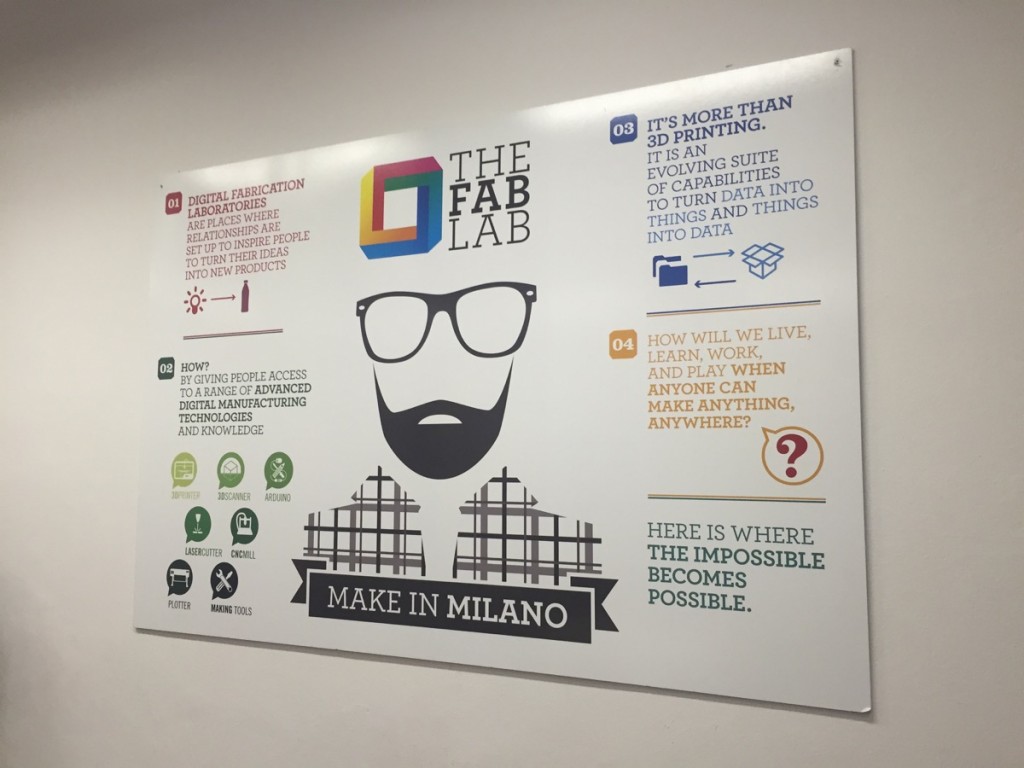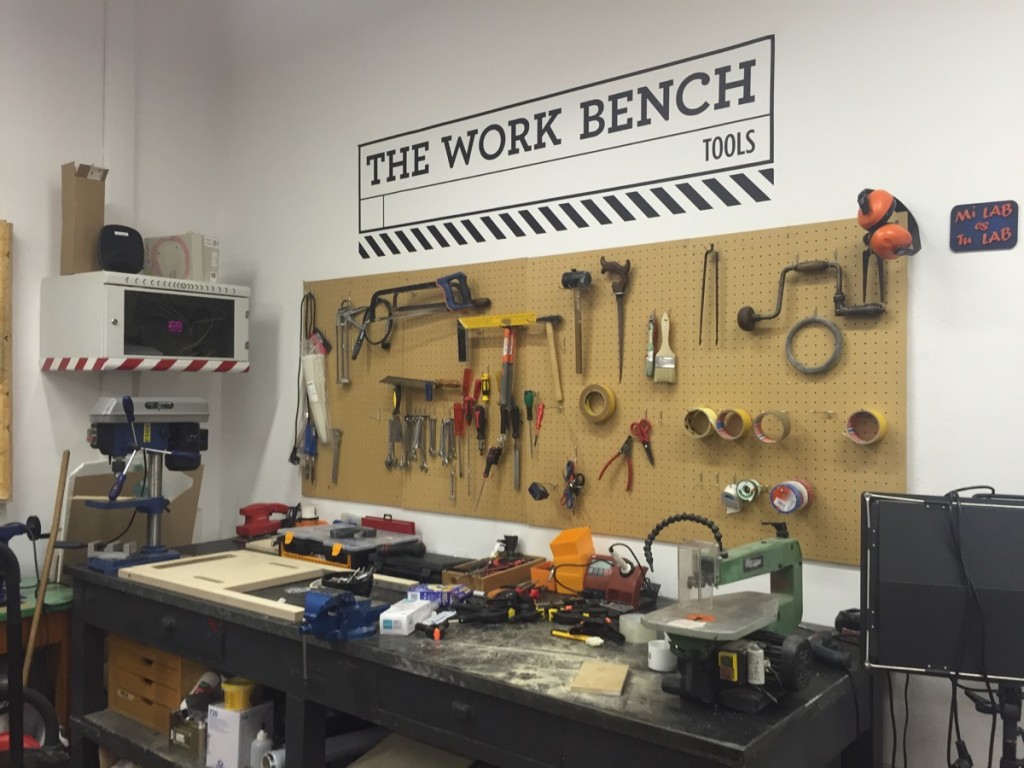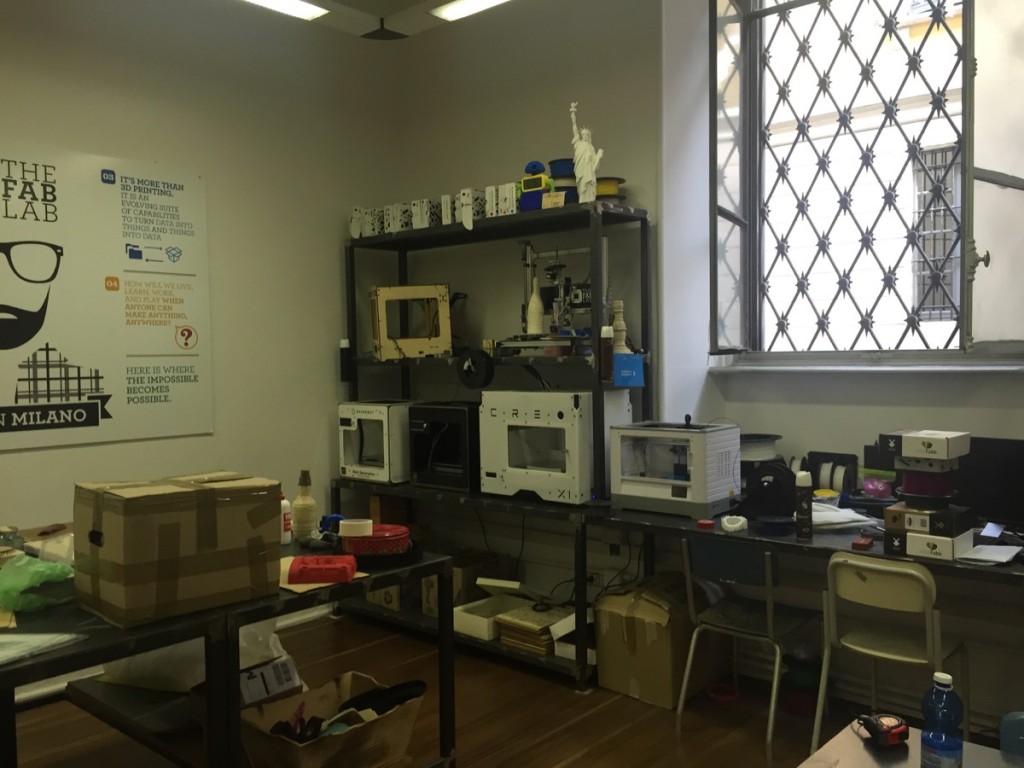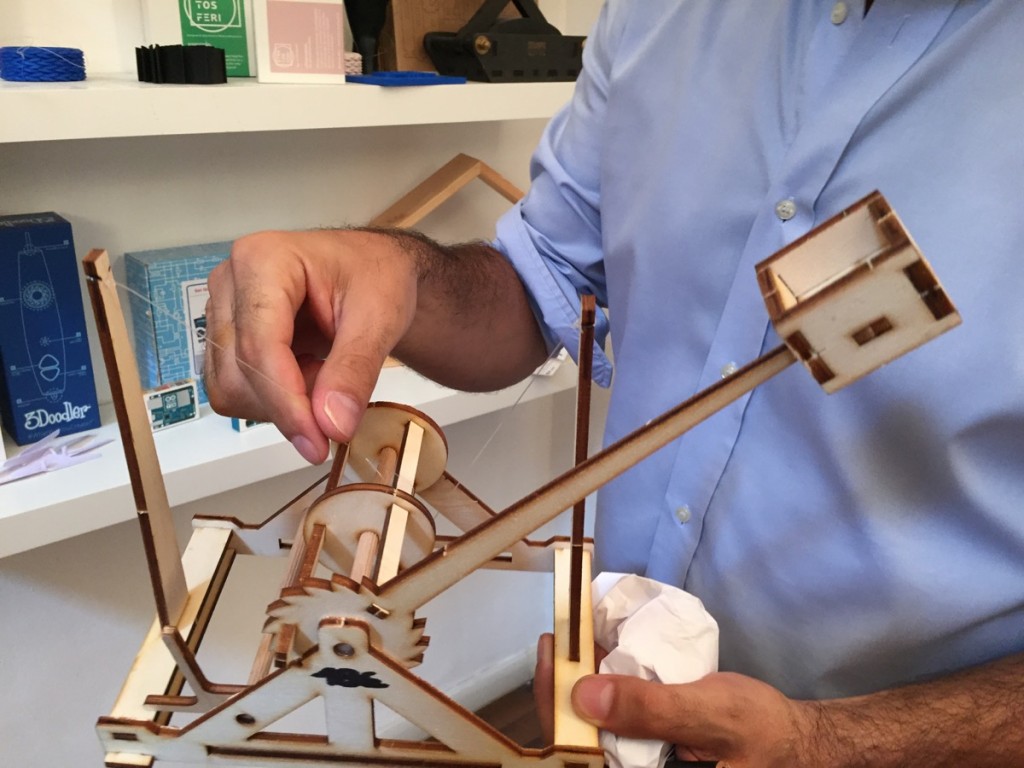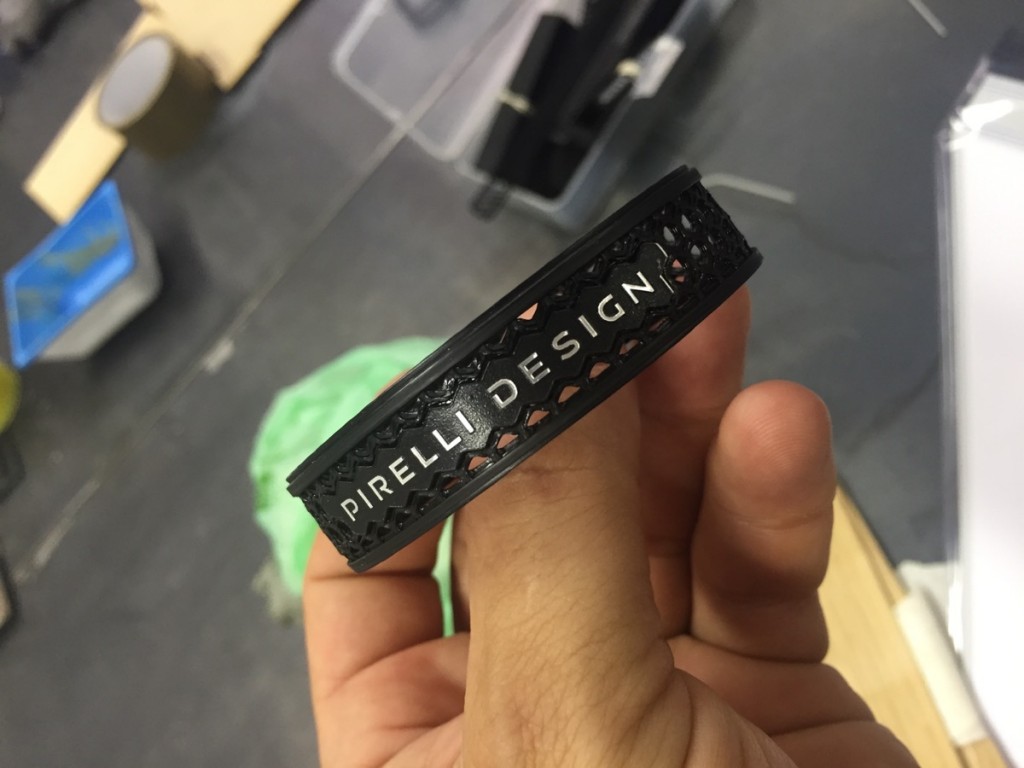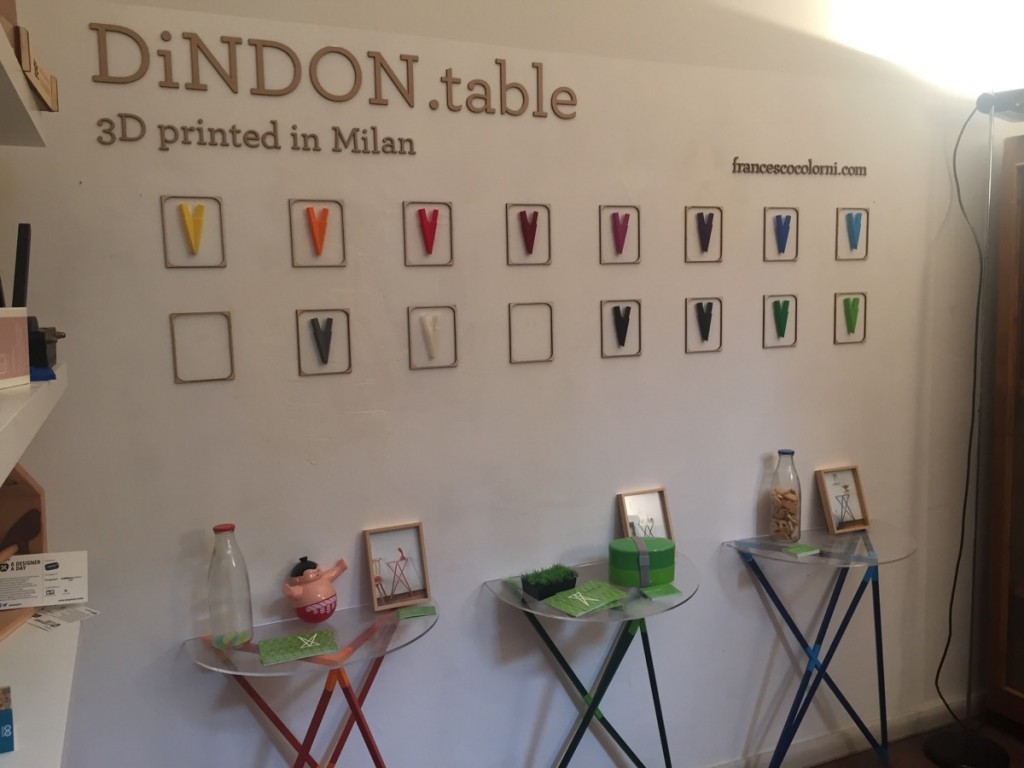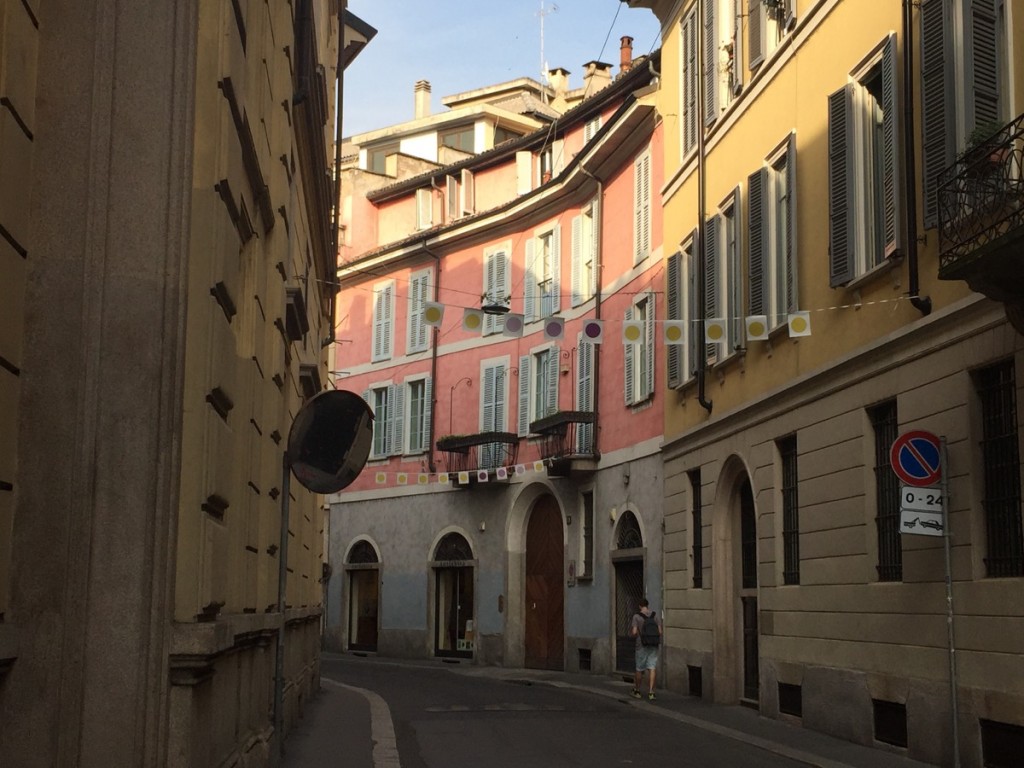I have visited Fablabs in many European cities, including Amsterdam, Berlin, Barcelona, London, and Budapest. In Milan, my hometown, there are at least six FabLabs and at least as many makerspaces. While I am in contact with some of them, I have never really visited one to find out about all that they do, perhaps because there are so many to choose from and not one single reference point.
So, when I decided to visit a FabLab in Milan, I started from the one founded by the very first person I met in Italy, who had told he wanted to launch a project involving 3D printing: Massimo Temporelli, co-founder of TheFabLab – Make in Milan. I knew Massimo from some friends we share and I remember clearly the time when he first told me he wanted to launch this project at the end of 2011.
A lot has happened since. Massimo’s main objective has always been to use all digital manufacturing technologies in order to create a viable and self-sustaining business. Today, he has succeeded, as TheFabLab is now hiring its first two employees. Considering Italy’s economic woes lately, this is quite an achievement.
“Right now we are eight people including three co-founders,” Massimo explained. “We are very proud that we are starting to see positive numbers and that this has enabled us to finally hire one of our interns and one of our collaborators with full contracts. We are even going to have staff shirts thanks to a partnership we have with K-way, that will use this collaboration in a campaign on ‘dressing innovation’.”
Although he has a physics degree, one of Massimo’s most valuable skills is his ability to establish synergies with larger companies, providing both branding and digital manufacturing services. He and his team can now also offer consultancy services to these companies that might want to implement a digital manufacturing workflow.
The FabLab has acquired extensive experience in working with 3D printers from several manufacturers, including Sharebot, FlashForge and 3Drag’s RepRap models. They are now set to be the very first FabLab in the world to have an SLS 3D printer on the premises, as they are participating in Sharebot’s beta testing program for its SnowWhite SLS project, which is set to hit the market soon, priced below $40,000.
Like all FabLabs, there are many other digital (and non-digital) personal manufacturing machines on the premises, including two CNC’s, a laser cutter, plotters, and more. Laser cutting, along with 3D printing, is proving to be one of the systems capable of generating more revenue. This is because TheFabLab is growing from a mainly academic and educational institution to a professional business, offering final products and services. To support this growth, the FabLab will split up into four business units: Shop, Service, Consultancy, and Education, each with its own revenue targets and a different person in charge.
“The truth is that the world of FabLab is evolving,” Massimo explains. “In order to survive and thrive, we need to grow into a professional business because companies want to see results and no one, especially in Italy, gives you anything for free. The more romantic side connected to bringing awareness to a new way of making things is subsiding, but this does not mean we are ever going to do away with our being open to everyone who wants to come in and learn how to use the machines.”
The Shop unit consists in the production and sale of digitally manufactured items, both made internally and externally. These products can be sold both inside the premises or through other services. The most successful product so far is the “Leonardo Machines”, which are wooden models inspired by some of Leonardo da Vinci’s inventions. All of the parts are laser cut into boards and Massimo revealed they have sold over 1,000 units to stores in the city. Another product that is proving successful is the DiNDON.table, which was designed by TheFabLab’s co-founder, Francesco Colorni, and combines traditionally manufactured glass parts with 3D printed components.
The Service unit is where Massimo can leverage his excellent connections to the industrial world. TheFabLab’s website displays the names of such companies as K-Way, Magneti Marelli, Armani Jeans, Pirelli, and Samsung among its partners and clients. These are companies that Massimo and his team can work with for the fourth business unit as well, which is dedicated to consultancies.
“Many companies come to us and ask us how they can digitize their production processes,” Massimo says. “That is something that we already do, so it becomes easier for us to teach them how they can implement it in their own workflow. Furthermore, we have now accumulated a significant experience with machines and processes and that is something that we can resell.”
Finally, there is the Education unit, which is still an integral part of TheFabLab’s activities. “In this case, it is not so important whether it brings in revenue. Education is something that we value because it can create opportunities both for us and for those who work with us. Over this past week, TheFabLab held a Digital Manufacturing summer school open to kids aged 10 to 12, which was reasonably priced and proved to be a great success. Especially in terms of the children’s enthusiasm.”
The idea you get when talking with him is that Massimo never stops thinking about new projects. TheFabLab is soon going to apply for a European funding program for robotics, together with Arduino.cc, and the Italian Technological Institute in Genoa. Closer to home, they are planning on several improvements to the 200-square-meter premises, including opening up a door to the outside and creating a workspace in the open air.
TheFabLab is located in a part of Milan that is very old and elegant. Walking outside, the feeling you get is that Leonardo Da Vinci, who lived in Milan for 16 years (during which he painted the Last Supper and designed the city’s canal-based transportation system, among many other things), does not seem that far away in time at all.



